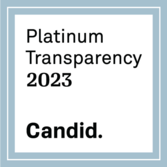Who Regulates Effluent Discharge?
Every facility in the United States that discharges effluent into the ocean must operate under either a state or federally issued permit. In New Jersey, the New Jersey Department of Environmental Protection (NJDEP) issues New Jersey Pollutant Discharge Elimination System (NJPDES) discharge permits which designate the locations of outfalls, limit the volume of effluent that may be discharged, and specify allowable levels of pollutants in effluent. These permits, issued under Section 403 of the Clean Water Act, require compliance with seven criteria to protect ocean waters from degradation. These include impacts of the disposal of pollutants on human health, marine life, and ecosystem. NJDEP is also responsible for establishing and enforcing treatment facilities’ monitoring systems, regulating the condition of discharging facilities, and determining if modifications (such as monitoring or plant capacity expansion) are necessary.
Most permits are issued for either three or five years. When permits expire, the state is responsible for examining facilities to ensure that facilities operate according to the permits. Before every permit renewal, a public comment period, usually 30 days, is required. During this time, citizens can voice their concerns about the permit renewal and facility operations. Announcements for public comment periods are printed in local newspapers and can also be requested directly from the NJDEP Division of Water Quality.


 Donate
Donate